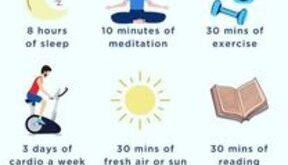The Power of Nutrition: How Diet Impacts Your Mental and Physical Health
What you eat plays a significant role in shaping both your mental and physical health. Proper nutrition provides the fuel your body and brain need to function optimally. A balanced diet not only affects physical well-being, but it also has a profound impact on mood, cognitive function, and overall mental health. Let’s explore how diet influences both mental and physical aspects of health.
1. Nutrition and Physical Health
a. Weight Management
A well-balanced diet helps maintain a healthy weight, which is key to preventing various health issues like heart disease, diabetes, and obesity. Consuming nutrient-dense foods like fruits, vegetables, lean proteins, and whole grains, while avoiding excess sugar and unhealthy fats, keeps your metabolism in balance and supports healthy body weight.
b. Boosting Immunity
Nutrients like vitamins C, D, and E, along with minerals like zinc and selenium, strengthen your immune system, helping your body fight off infections and illnesses. A diet rich in fruits, vegetables, nuts, and seeds provides the essential nutrients to maintain a robust immune system.
c. Energy Levels and Physical Performance
Carbohydrates, proteins, and fats serve as the primary sources of energy. Carbohydrates, especially from whole grains and fruits, provide quick energy, while proteins and fats sustain energy over longer periods. Eating balanced meals throughout the day prevents energy crashes, keeps blood sugar levels stable, and enhances physical endurance and performance.
2. Nutrition and Mental Health
a. The Gut-Brain Connection
Your gut and brain are closely linked through what is known as the “gut-brain axis.” The gut produces neurotransmitters like serotonin, which regulate mood and emotions. A diet high in processed foods, sugar, and unhealthy fats can disrupt this balance, leading to inflammation and negatively affecting mental health. On the other hand, a diet rich in fiber, probiotics (found in yogurt and fermented foods), and omega-3 fatty acids supports a healthy gut, which in turn improves mental well-being.
b. Impact on Mood and Cognitive Function
Certain foods have a direct influence on mood and cognitive function. Omega-3 fatty acids, found in fish, flaxseeds, and walnuts, have been shown to reduce symptoms of depression and anxiety. Complex carbohydrates like whole grains help regulate blood sugar levels, preventing mood swings and fatigue.
B vitamins, particularly B12 and folate, are essential for brain health and energy production. A deficiency in these nutrients can lead to feelings of fatigue, irritability, and even depression. Eating leafy greens, legumes, and lean meats helps provide these necessary nutrients.
c. Reducing Stress and Anxiety
Magnesium-rich foods, such as spinach, almonds, and dark chocolate, help relax the nervous system and reduce stress. Antioxidant-rich foods like berries, nuts, and green tea fight oxidative stress, which is linked to mental health disorders like anxiety and depression.
3. The Role of Hydration
Proper hydration is often overlooked, yet it is essential for both physical and mental health. Dehydration can cause fatigue, poor concentration, and irritability. Drinking enough water throughout the day improves cognitive function, mood, and physical performance.
4. Foods to Boost Brain Power
a. Fatty Fish
Fatty fish like salmon, mackerel, and sardines are rich in omega-3 fatty acids, which are crucial for brain health. Omega-3s are known to improve cognitive function, reduce the risk of neurodegenerative diseases, and support emotional well-being.
b. Leafy Greens
Spinach, kale, and other leafy greens are packed with antioxidants, vitamins, and minerals that reduce inflammation and promote brain health. These vegetables also provide folate, which is essential for proper brain function and the prevention of cognitive decline.
c. Nuts and Seeds
Almonds, walnuts, chia seeds, and flaxseeds contain healthy fats, fiber, and vitamin E, all of which support brain function and protect against age-related cognitive decline.
5. Balanced Diet for a Balanced Mind and Body
Maintaining a balanced diet is key to overall well-being. Here are some dietary guidelines to ensure both physical and mental health benefits:
- Eat a Variety of Foods: Include fruits, vegetables, whole grains, lean proteins, and healthy fats in your diet.
- Limit Processed Foods: Reduce your intake of processed foods, sugary drinks, and unhealthy fats.
- Incorporate Healthy Fats: Choose sources of omega-3 and omega-6 fats, such as fish, nuts, and seeds, which are beneficial for both heart and brain health.
- Stay Hydrated: Drink enough water to support cognitive function and physical performance.
- Watch Portion Sizes: Avoid overeating by practicing mindful eating and paying attention to portion sizes.
Conclusion
The power of nutrition is immense in shaping both your physical and mental health. A nutrient-rich diet not only supports your body’s vital functions, such as immune response and energy production, but also plays a key role in mood regulation, cognitive function, and mental well-being. By focusing on balanced, wholesome foods and staying hydrated, you can nurture your body and mind, leading to a healthier, more fulfilling life.



